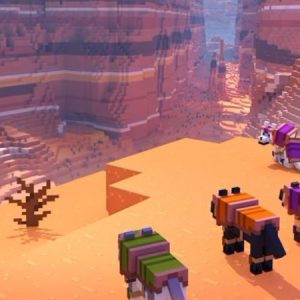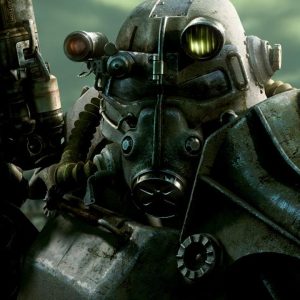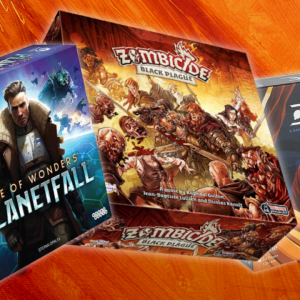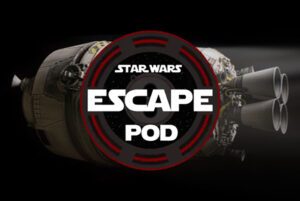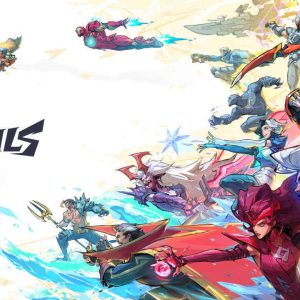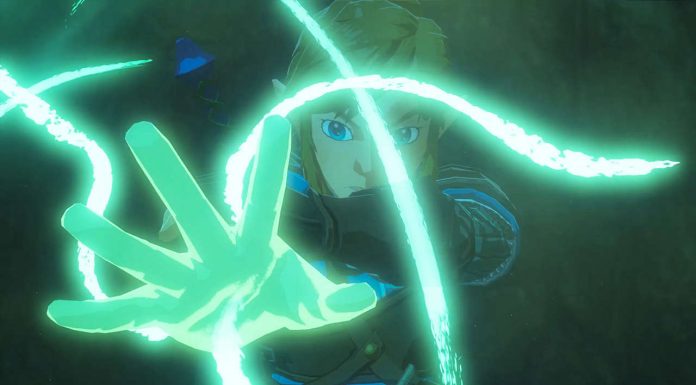The case for games that aren’t really anything special, but will last you a very long time.
Here’s a hypothetical question for you. Which is better: an excellent 10-hour game or a decent 50-hour one? One that grips you consistently for a short time, or one that captures your imagination only occasionally across a long time? Of course, there are a whole lot of unknown factors here like genre or price, and obviously the ideal situation would be a big game that’s also varied and engaging. But not every game can be The Witcher 3 or Red Dead Redemption 2, so in a very general sense, which do you personally prefer?
Chances are you know what you’d pick pretty quickly, and it’s also a given that your answer will be the opposite of someone else’s. The debate of ‘quality vs. quantity’ in games doesn’t really have a “right” answer, and I’m not here to try and solve it. But while I think we can all agree on the blanket statement that “games should be good instead of bad,” there’s a case to be made for the value of a game that isn’t really anything special, but is consistently entertaining and will last you a very long time.
It’s not a new trend by any means, but recent games like Rage 2 and Days Gone have got me thinking about this a lot lately. They’re big, open-world games that, according to metascore averages, reviewed respectably well but not amazingly, and both were widely criticized for having you doing fairly repetitive tasks over and over. Obviously, the two aren’t exactly the same, each with their own individual highs and lows, but that much is generally true of both.
What you are doing in these games is, by many accounts, fun, but in both Rage 2 and Days Gone you’re repeatedly doing similar tasks… a lot… for a long time. I even had a comparable complaint with Super Smash Bros. Ultimate’s World of Light mode in my review last year: it’s also fun but doesn’t really change after about halfway through the 30+ hours it takes to beat it, and monotony set in well before it was over.
Criticism like this is entirely fair – reviews are fundamentally the opinion of the reviewer, and in my opinion, all three of these games would be higher-quality packages as a whole if the needless repetition was removed, allowing them to be distilled down to a concentrated dose of their best parts. I also think it’s valid and important for people to keep bringing up issues like filler missions used to pad out game length in order to challenge devs to make games like these more engaging and dynamic in the future.
But just because something would be better for me without its repetitive parts doesn’t mean it would be “better” for everyone. A $60 game is flippin’ expensive, and while we are currently in an era where dozens of new (and often much cheaper) games come out every single day, not everyone is privileged enough to have the luxury of infinite choice. (On a related note, here’s why we try not to let price influence our review scores.) Many folks have to save up and pick one game for the foreseeable future, so it’s very important to them to make sure it lasts until they can afford another.
From that perspective, the repetitive mission design of a game like Rage 2 isn’t a bad thing – it could almost be seen as a perk. What you’re doing is fun enough, and there’s plenty of it. What’s wrong with that? It’s the same reason a New Game Plus mode could be a valuable feature to one person but entirely pointless to another. What’s padding to some is just content to others, especially if you aren’t looking to rush straight to the credits and move on to the next thing.
As IGN commenter Stone-coldmal123 put it to me last week, the repetitiveness of Smash Bros.’s World of Light will be far more aggravating if you’re playing the whole thing in a weekend rather than over the course of six months (Side note: I can promise you that playing a game in a short review window is something every reviewer at IGN always takes into consideration, and I still think World of Light has variety issues that I’d have found off-putting at any pace. But it’s a fair point all the same.)
Again, that’s just one perspective on this – the concept of the “value” of a game or what makes one “worth it” will always be illusive. Evaluating the cost of something is just as subjective as saying whether you like it or not, because $15 can be a lot or a little depending on how much disposable income and time you have at a given point in your life. So one person might be more than happy to spend that amount on an enjoyable little two-hour game like 39 Days to Mars while another won’t spend it on anything less than the 40+ hours of a something like Hollow Knight (which, miraculously, has little to no filler at all).
But that’s the trouble with opinions: they’re personal. I’m happy that people are holding developers accountable for padding out games in uninteresting ways, just like I’m happy others can find value in those experiences all the same. Whether a game like Days Gone is worth it or a waste of time and money as a result is up to you.
Tom Marks is IGN’s Deputy Reviews Editor and resident pie maker. You can follow him on Twitter.
